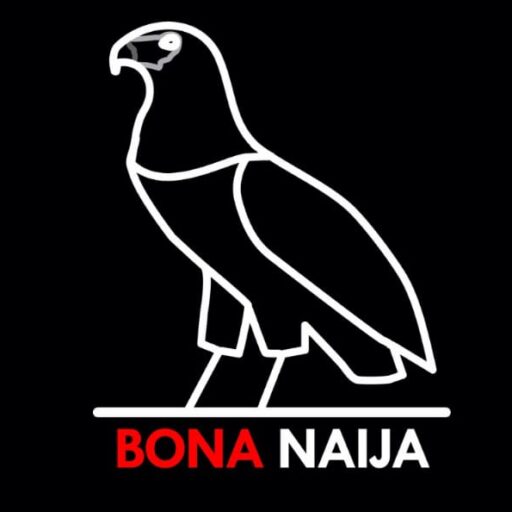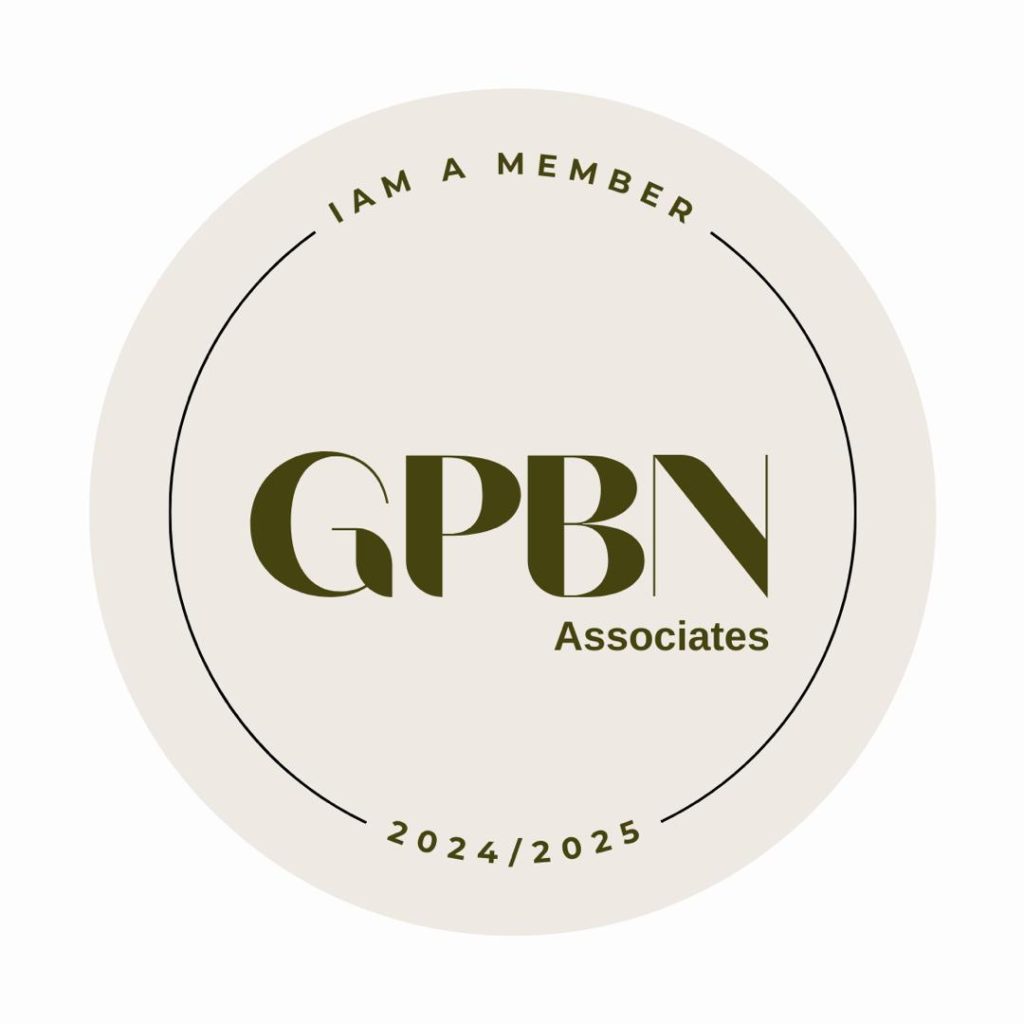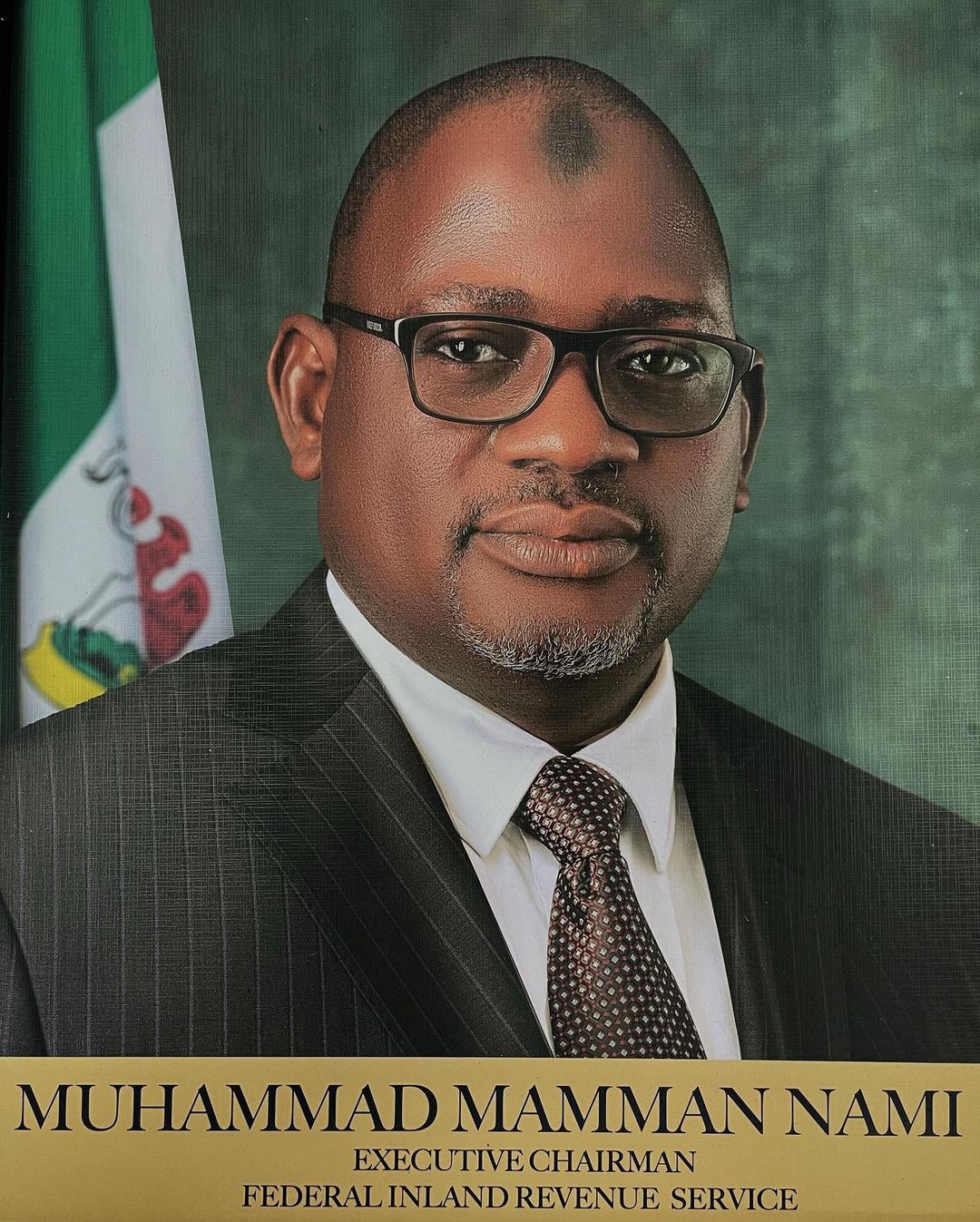
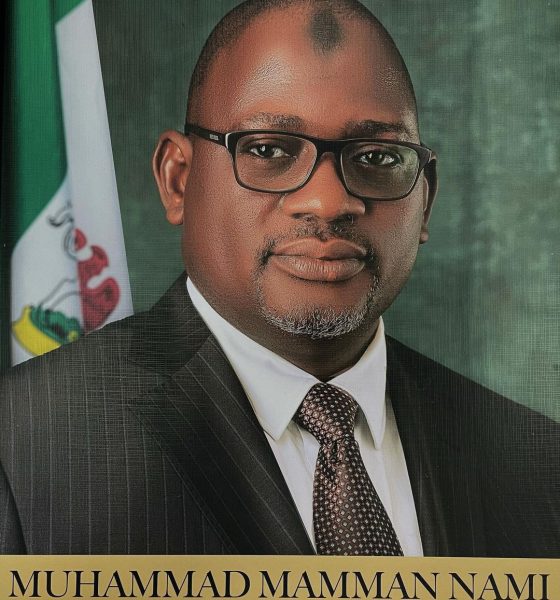
News
TAX RIGHTS AND TAX OBLIGATIONS: TWO SIDES OF THE SAME COIN
It is common knowledge that taxation plays a vital role in the economic development of every country whether developed, developing or under developed, and Nigeria is no exception. Government at all levels depends on the tax it collects to run the affairs of the State and it is the duty of every taxable citizen to contribute their quota to this effect. Without taxes, there can be no country.
According to the Constitution of the Federal Republic of Nigeria 1999: Section 24 (f) of 1999 Constitution (as amended) it states that “it shall be the duty of every citizen to declare his income honestly to appropriate and lawful agencies and pay his tax promptly”. This is a legal requirement and it is fundamental to the successful operations of the country. Mind you, it is not an option or a recommendation but an obligation of every Nigerian citizen.
Some Nigerian Tax laws and Regulations which require compliance to tax payment include: Federal Inland Revenue Service (Establishment) Act (FIRSEA), Cap F36 LFN 2007; Personal Income Tax (PITA ), Cap P8, LFN 2004 as amended; Petroleum Profit Tax Act (PPTA), Cap P13, LFN 2004 as amended; Companies Income Tax (CITA), Cap C21, LFN 2004 as amended; Value Added Tax Act (VATA), Cap V1,LFN 2004 as amended; Tertiary Education Trust Fund (Establishment, Etc) Act (TETFEA) 2011 as amended; Stamp Duties Act (SDA), Cap S8, LFN 2004 as amended; Capital Gains Tax Act (CGTA), Cap C1, LFN 2004 as amended; National Information Technology Development Agency Act and the provisions of the Finance Act 2019, 2020, 2021 and 2023. These laws have provided the legal framework containing various tax obligations of a taxpayer.
Every taxpayer has certain rights such as: right to non-discrimination, transparency and accountability, adequate notice and information, redress, compliance assistance amongst others. But with these rights come responsibilities and obligations that must be fulfilled in compliance with the country’s tax laws. Some taxpayers fall short in fulfilling their tax obligations not necessarily because they want to but for lack or poor understanding of these obligations. This piece aims at shedding light on the key tax obligations of taxpayers in Nigeria.
The obligations of Nigerian taxpayers include, but are not limited to the following: registration for tax: Taxpayers are obligated to register with the appropriate tax authorities, depending on the type of tax they are liable for. This includes obtaining a Taxpayer Identification Number (TIN) from the Federal Inland Revenue Service (FIRS) for companies and the Joint Tax Board (JTB) for individuals.
Another obligation expected of taxpayers is record keeping. Taxpayers are required to maintain accurate and up-to-date records of their financial transactions, including income, expenses, assets, and liabilities. These records are essential for filing tax returns, substantiating deductions, and complying with tax audits. Record keeping is not common practice among small businesses. Yet it is the foundation for fulfilling your tax obligations. If you do not keep your records, how would you know what taxes you are meant to pay?
It is also the obligation of a taxpayers to file tax returns within the prescribed timelines. Individuals are required to file their Personal Income Tax (PIT) returns annually, while companies must file their Corporate Income Tax (CIT) returns within six months after the end of their financial year. Other tax returns, such as VAT returns and WHT returns, may also be required depending on the taxpayer’s activities. All too often, taxpayers think that if they do not make profits, or do not have a turnover above N25 million, then they are not required to file. This is not true. Filing returns is to be made whether or not you made profits or losses. As long as you are a taxpayer, you ought to file returns with the relevant tax authority.
Flowing from this obligation is the obligation to pay taxes—the most commonly spoke about obligation. Taxpayers have an obligation to pay the taxes they owe to the relevant tax authorities. This includes the timely remittance of Personal Income Tax, Companies Income Tax, Value Added Tax, Withholding Tax, and other applicable taxes. They also owe it as an obligation to comply with tax deductions. Employers and businesses that make payments subject to withholding tax (WHT) must deduct the appropriate tax amount at source and remit it to the tax authorities. This includes deducting WHT from salaries, contracts, dividends, interest, and other relevant payments.
Furthermore, taxpayers are required to provide accurate information and documentation as requested by tax authorities. This includes providing supporting documents for deductions, exemptions, and claims made on tax returns as well as cooperating with tax audits and investigations, providing requested information and records, and responding to inquiries in a timely and accurate manner.
To crown it all, taxpayers must comply with all relevant tax laws and regulations which includes staying updated on changes in tax laws and fulfilling their obligations accordingly.
By understanding and diligently leaving up to tax obligations, individuals and businesses actively participate in the development and progress of the country, ensuring a more prosperous, greater and equitable society for all.
Rachel Jantiku, is a researcher and writes from Abuja.
News
Court Orders Suspension of PDP National Convention Over Lamido’s Exclusion
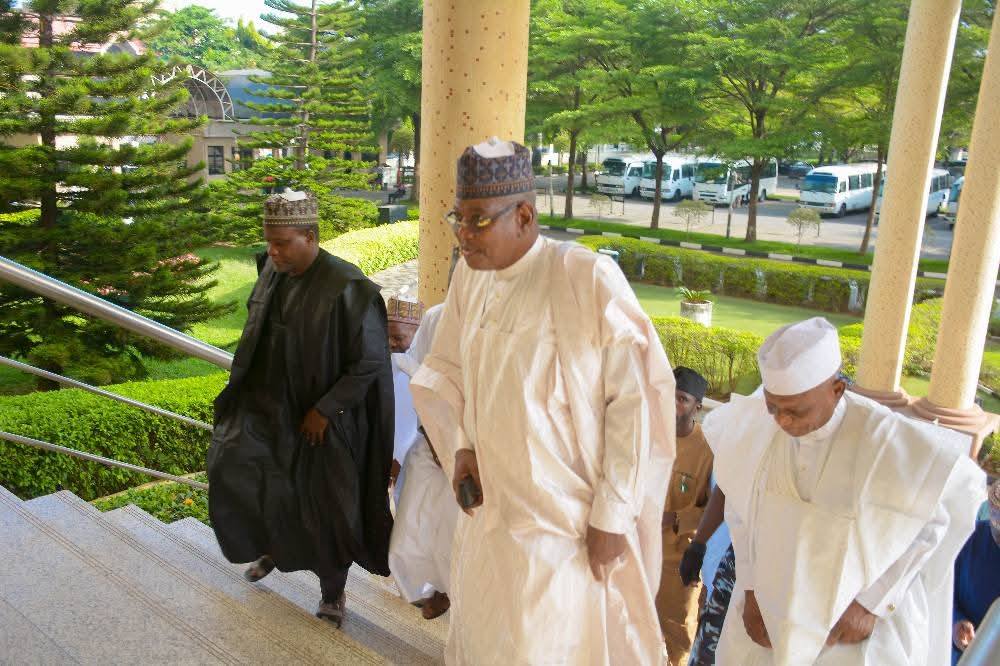
A Federal High Court has ordered the suspension of the Peoples Democratic Party (PDP) National Convention until former Jigawa State Governor Sule Lamido is allowed to fully participate in the chairmanship contest.

In a ruling delivered on Friday, the court held that the party must permit Lamido to purchase the nomination form, undergo screening, and contest for the national chairmanship position. The judge stated that preventing the former governor from acquiring the form amounted to a violation of his constitutional and party rights.
The court emphasized that proceeding with the convention without resolving Lamido’s complaint would constitute a breach of fair hearing and due process, noting that internal party democracy must comply with established legal standards.
Additionally, the court directed the Independent National Electoral Commission (INEC) to refrain from monitoring or recognizing the convention until the PDP fully complies with the order.
The PDP has not yet issued an official reaction to the ruling.
Follow BONA NAIJA for more
News
Obiano Alive, Former Aide Debunks Death Report of Ex-Anambra Governor

Former Anambra State Commissioner for Information, Mr. C-Don Adinuba, has dismissed reports claiming that ex-Governor Willie Obiano has died in London. Adinuba said that the former governor is alive, strong, and residing in Houston, Texas, United States.
SaharaReporters reported on Friday that Obiano had passed away in London after health complications.
Speaking in a telephone interview, Adinuba described the claims as “provocative,” “unfounded,” and entirely false.”
“I just spoke with the former governor and members of his family a few minutes ago. He is hale and hearty in Houston, United States, where he resides,” Adinuba said.
“Contrary to the reports, Obiano is not in London and has not been hospitalised. He is strong, hale, and hearty… Please ignore the rumour it is fake.”
He urged the public to disregard what he called a deliberate spread of misinformation.
Obiano’s personal publicist, Tony Nezianya, also said he had not received any information confirming the rumoured death.
“I can’t confirm this; I am not aware of such news,” Nezianya told our correspondent.
Background
Willie Obiano served as Governor of Anambra State from 2014 to 2022, succeeding Peter Obi and handing over to the current governor, Prof. Chukwuma Charles Soludo.
Born on August 8, 1955, Obiano hails from Aguleri in Anambra East LGA.
He is currently facing an EFCC investigation over an alleged ₦4 billion fraud during his tenure.
Follow BONA NAIJA for more
Africa
African Union Rejects Christian Genocide Claims in Nigeria After Trump Threats

The African Union (AU) has firmly dismissed allegations of a “Christian genocide” in Nigeria, countering recent claims and implied threats of U.S. military intervention made by President Donald Trump.
Speaking at a United Nations press conference on Wednesday, African Union Commission Chairperson Mahmoud Ali Youssouf described the allegations as “dangerously misleading” and warned against external narratives that could inflame tensions in Nigeria.
“There is no evidence of a systematic campaign aimed at exterminating Christians in Nigeria,” Youssouf stated. “Extremist groups such as Boko Haram and ISWAP have, in fact, targeted far more Muslims than Christians since their insurgency began in 2009.”
AU: Violence Is Terrorism, Not Religious Cleansing
Youssouf explained that the AU continues to monitor the security situation in Nigeria’s northeast, where Boko Haram’s insurgency remains active. He stressed that the violence does not fit the definition of genocide and should instead be understood as “indiscriminate terrorism driven by extremist ideology, not religious policy.”
Nigeria Agrees with AU Position
The Nigerian government has also rejected Trump’s characterization of events. Officials say that both Christian and Muslim communities have suffered, and that framing the conflict as a religious war undermines counterterrorism cooperation.
AU Warns Against Foreign Military Intervention
Responding to Trump’s threat of possible military action to “protect Christians,” Youssouf urged the U.S. to avoid unilateral decisions.
“Nigeria is a sovereign state. Any intervention must be coordinated with African institutions and grounded in facts, not political sentiment,” he said.
He added that mischaracterizing Nigeria’s complex security challenges could worsen religious tensions and derail stabilization efforts.
Follow BONA NAIJA for more
News
Seyi Vibez Drops Fuji Moto Album Featuring Trippie Redd, French Montana, NLE Choppa & Olamide

Nigerian Afrobeats sensation Seyi Vibez has released his highly anticipated album Fuji Moto, a 14-track project that fuses Fuji rhythms with trap, street-hop, and melodic Afro-fusion. The album arrived on November 14, 2025, under EMPIRE, marking one of Seyi Vibez’s most ambitious creations yet.
Fuji Moto features standout international and local collaborations, including Trippie Redd, French Montana, NLE Choppa, and Nigerian rap icon Olamide. The project also includes several deep, introspective solo tracks where Seyi Vibez reflects on pain, resilience, spirituality, and his rise from the trenches to global acclaim.
Within hours of release, the album debuted at No. 2 on the Apple Music Nigeria Top Albums chart and quickly became Seyi Vibez’s most-streamed project ever on Spotify, reinforcing his status as one of the most influential voices in modern Afrobeats and street music.
With its blend of traditional Fuji influences and contemporary sonic experimentation, Fuji Moto cements Seyi Vibez’s reputation for pushing boundaries and representing the sound of the streets on a global stage.
Follow BONA NAIJA for more
Abuja
Wike Presides Over FCT Exco, Launches New Waste Management System for Cleaner Abuja
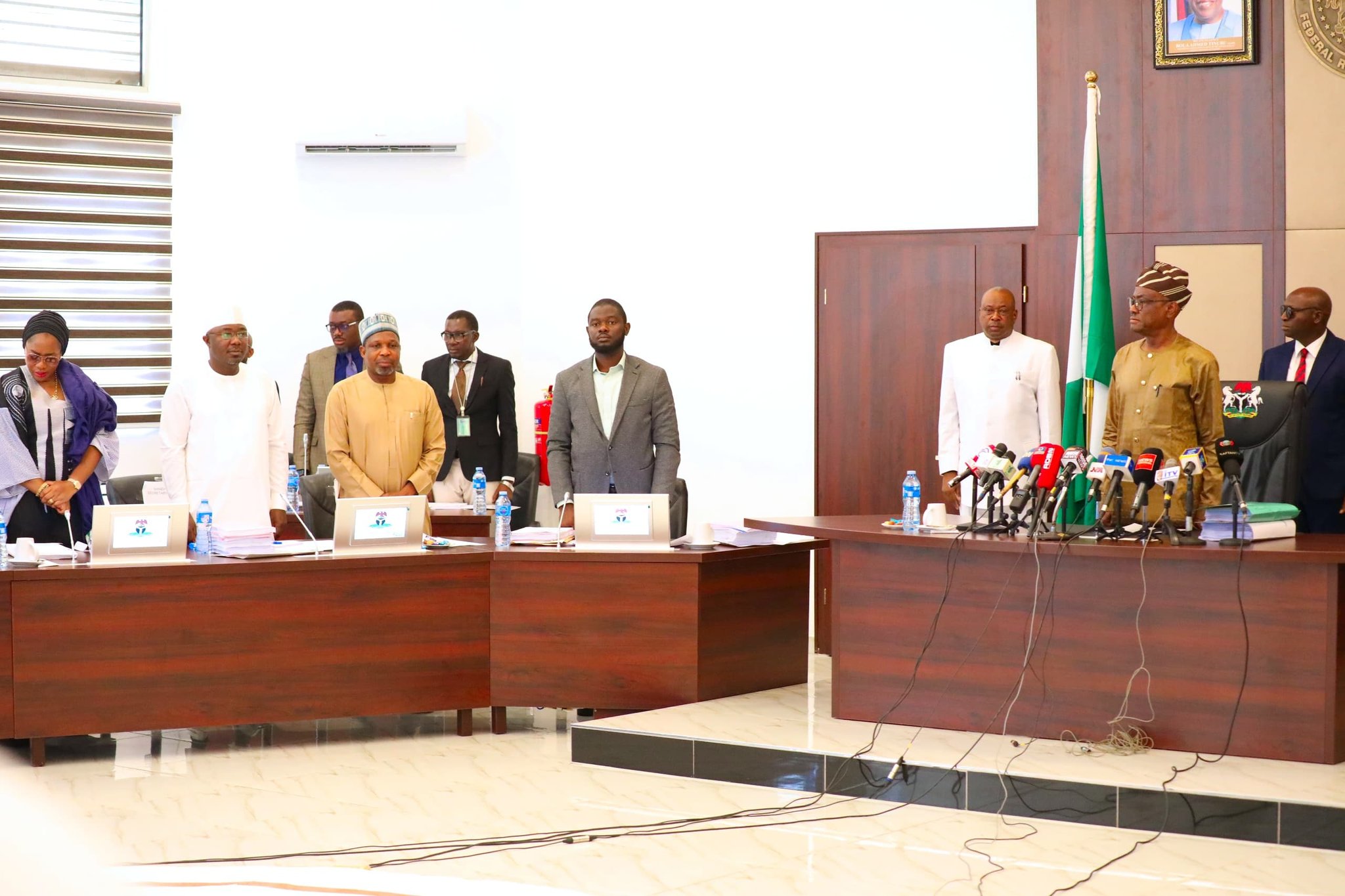
The Federal Capital Territory Administration (FCTA) will commence a comprehensive new waste management regime across Abuja from Monday, November 17, 2025, as part of efforts to improve sanitation and restore environmental order in the nation’s capital.
The announcement followed the FCT Executive Committee Meeting held on Thursday and presided over by the Minister of the FCT, Nyesom Wike.
Briefing journalists after the meeting, the Coordinator of the Abuja Municipal Management Council (AMMC), Chief Felix Amechi Obuah, revealed that the Executive Committee had ratified and approved a memo appointing new contractors to handle waste collection and management across different districts of the FCT.
According to him, the approval also covers the procurement of basic waste treatment plants, alongside the maintenance and operation of supervisory utility vehicles to support the new regime.
Chief Obuah, who acknowledged widespread complaints about waste disposal in the capital, expressed optimism that residents would begin to experience a significantly cleaner and better-managed Abuja once the new system takes effect.
Also speaking, the head of the Satellite Towns Development Department (STDD), Hon. Abdulkadir Zulkiflu, disclosed that the Committee approved payment for the emergency evacuation of waste from open dump sites, waterways, and stream channels in the Dogon Gada community of the Abuja Municipal Area Council (AMAC).
He explained that a total of ₦111,913,176 was released for the execution of the cleanup contract.
In addition, the FCT Transportation Secretary, Hon. Chinedum Elechi, announced approvals for printing services for the Directorate of Road Transport Services. He added that funds have also been approved for the operation and maintenance of 34 existing traffic lights, as well as the installation of three new traffic light systems within the Federal Capital City.
Earlier in the meeting, the Chief of Staff to the FCT Minister, Hon. Chidi Amadi, reiterated Wike’s determination to maintain high environmental standards in Abuja.
“The Minister is very concerned about the waste management contract,” he said. “He is serious about it because it directly affects the cleanliness and overall image of the city.”
With the new waste management framework set to take effect next Monday, the FCTA says it is fully committed to delivering a cleaner, orderly, and world-class Abuja.
Follow BONA NAIJA for more
-
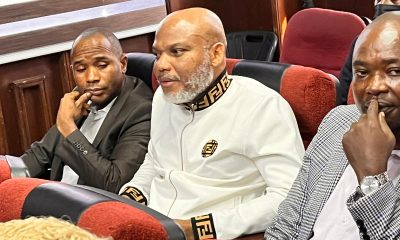
 Abuja3 weeks ago
Abuja3 weeks agoIPOB Leader Nnamdi Kanu Declines to Enter Defence, Insists “No Case” Against Him
-

 Lifestyle4 weeks ago
Lifestyle4 weeks agoNed Nwoko Drops Bombshell, Says ‘Men Marrying Multiple Wives Are Helping Women’
-

 Music News3 weeks ago
Music News3 weeks agoFlavour Unveils ‘Afroculture’ Single Featuring Baaba Maal, Directed by TG Omori
-

 World News3 weeks ago
World News3 weeks agoTwo Killed, Two Injured as Plane Bursts Into Flames After Takeoff Crash in Venezuela
-

 World News2 weeks ago
World News2 weeks agoTrump asks Pentagon to immediately start testing U.S. nuclear weapons
-

 Entertainment3 weeks ago
Entertainment3 weeks agoDavido Kicks Off ‘5ive Alive’ Tour with Sold-Out Uyo Stadium Show
-

 World News1 week ago
World News1 week agoUS Military Submits Contingency Plan for Action in Nigeria
-

 Music2 weeks ago
Music2 weeks agoMusic: Badshah and Davido Launch Cross-Cultural Hit “Wallah Wallah”
-

 News4 weeks ago
News4 weeks agoBREAKING: Tinubu Nominates Dr. Bernard Doro as New Minister from Plateau State
-

 News4 weeks ago
News4 weeks agoBREAKING: Nnamdi Kanu’s Brother, Lawyer, 11 Others Remanded in Kuje Prison


